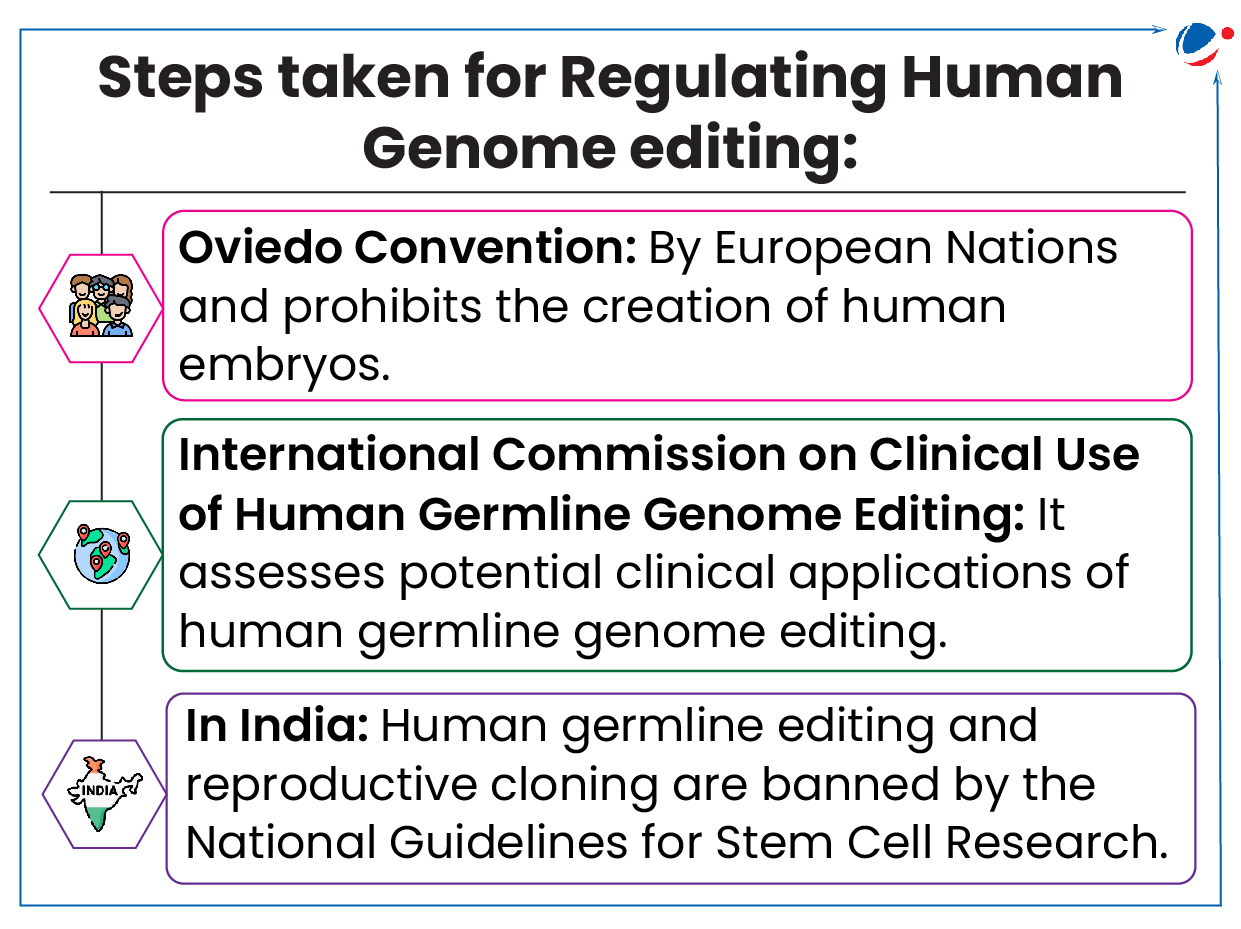Why is the news?
South Africa becomes first country to allow Heritable Human Genome Editing (HHGE

More of the news
- Country's new guidelines on Ethics in Health Research appear to position South Africa as first to explicitly permit use of genome editing to create genetically modified children.
- South African guidelines are less stringent than frameworks proposed by organizations like WHO, which emphasize societal consensus.
About HHGE
- Unlike somatic cell editing, which affects only individuals, HHGE introduces changes in germline cells (sperm, eggs, or embryos), enabling these alterations to be inherited by offspring.
- It can be achieved through tools like Zinc-finger nucleases (ZFNs), Transcription Activator-Like Effector Nucleases (TALENs), CRISPR/Cas9 and Meganucleases.
Potential Applications of Heritable Genome Editing
- Disease Prevention: Such as Heritable diseases, cystic fibrosis, Huntington's disease, and sickle cell anemia.
- Advancement of Genetic Research: Potential to expand our understanding of human biology, genetics, and disease mechanisms.
- Assisted reproductive technology: can improve technologies, such as in vitro fertilization (IVF) etc.
Concerns of Heritable Genome Editing
- Unforeseen consequences: Germline genome edits would be heritable, however, their effects could be multigenerational.
- Ethical issues: Against Dignity of humans and respect for their variety, challenging fundamental religious and moral beliefs etc.
- Societal Impact: Creation of "designer babies," where traits like intelligence, appearance, and athleticism might be engineered, can exacerbate social inequality.




